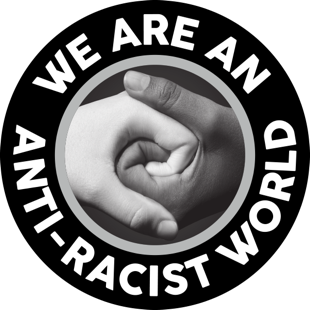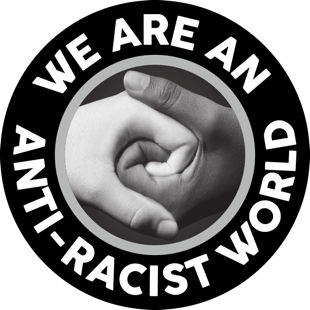When Did Race Come For You?
“I was in third grade. In those days, fall mornings in North Carolina were more often than not a bright blue backdrop to the rhythm of dried leaves shaking in gentle but cold breezes, and even though the humidity would make the cold stick to your face your lips were still chapping like crazy. I liked walking the short distance to the bus stop at the end of my street because there was usually a neighbor friend to talk to on the way, and there was always the slight chance for antics if there was any substantial period of time that we had to wait for the bus to arrive. You kind of always hoped for a longer wait so that there was more time to chill, and deep down you knew that you might even have to miss the first few minutes of class and somehow that seemed like a win at 9 years old. I felt safe there in my neighborhood with familiar people, laughing, commiserating, or just being quiet and given the space to wake up slowly.
It was on this morning that the bus would arrive a little later than normal, and when it did, our group loaded the bus. On this particular bus, students were quiet and that was because the driver of this bus did not mess around with loud noises or misbehavior and would promptly report such incidents to the school and subsequently, parents. I preferred to sit in the back, in no particular seat, because that’s usually where my other friends from different parts of the neighborhood were already sitting. On my way to see my friends, a student new to this bus stood up out of his seat and began walking down the aisle towards me. This was confusing to me because we were supposed to be finding our seats, and he clearly already had one but apparently was deciding to find a different one which meant that I was now in his way. He yelled at me, “Move!” He looked angry. I tried to squeeze myself to his left to get out of his way but wasn’t able to very well because the seats to my right were packed and so knees, elbows, and backpacks were spilling over into the aisle. He was closer now, his face about a foot away from mine. He yelled again, “Move! Stupid white b****!” A split second later, his fist connected with my mouth. There was a sharp pain, the taste of the skin of his hand mixed with the blood in my mouth.
Tears welled so much in my eyes that I could see only abstract shapes in front me while I heard this student behind me now, laughing with his friends as though nothing had happened. The surface tension broke and the tears streamed down into my mouth, stinging my lips. Salt and iron. I felt my teeth with my tongue to make sure they were all where they were supposed to be. One of my friends grabbed my hand and pulled for me to sit next to him. I put my head down, resting the top of my head against the back of the seat in front of me. It smelled like a locker room. Hands reached across the aisle and over the back of the aging, brown vinyl divider while voices whispered to me, asking if I was okay. I nodded my head, and after a few minutes, the hands and voices receded and I leaned my head back so I could see out of the windows. My cheeks were on fire. My lip was throbbing. I could feel people looking at me. I fought back tears and tried to focus on the sky that was so brilliant and limitless at the bus stop but was now trapped inside skinny metal frames containing shaky glass panes and reflecting back distorted images from the opposing windows. If I could have sent my entire being through that window to leave my body behind for just a short reprieve from the overwhelming intensity of those moments, I would have. Third grade. “Stupid white b****.”
In Ibram X. Kendi’s, Be Anti-Racist: A Journal For Awareness, Reflection, and Action, Kendi asks, “When did race come for you? Describe in detail your earliest memory when you saw the world through a racial lense.” On that gorgeous fall morning on the way to school, race came for me. It literally yelled at me and punched me in the face. I tasted it and felt a fraction of its pain. I felt the clenched jaw and closed fists, the burning anger and blurry eyes. The confusion, hurt, and embarrassment. As a fun-loving but deeply sensitive and highly observant kid, it wasn’t long before I realized that what I had experienced in those few moments was nothing compared to what people of color had been experiencing for what I thought was decades. Third grade was also the year we began learning about the civil rights movement in the U.S., and I remember paying very close attention to those lessons because I was beginning to see things differently than I had before.
It took me some time to forgive that student for what he did, but after years, I got there because I began to be able to see the gifts that he gave to me that day. He gave me the opportunity to begin waking up to my own whiteness and everything I was never aware of that went along with that. He inspired me to imagine the experience of another and to better understand what might be at the root of a person’s actions. He challenged me to discover what it meant to find forgiveness and strength in the face of wrongdoing. In the briefest blip on our timeline, he started me on my anti-racist journey, and for that I can only be grateful.”
-Elizabeth



